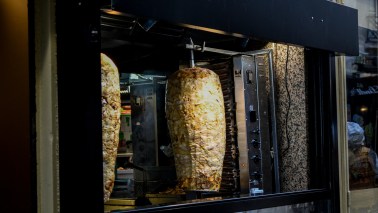
These journalistic pieces and two themed short stories have been written by Martin Amis after, and under the direct influence of, the events of 11 September 2001 in America. In a time of increasing specialisation, some supercilious amusement has been expended on the idea of novelists expressing their opinions on current affairs. Terry Eagleton, the academic who, by maintaining a semblance of Marxist thought in the 21st century, revives the dictionary meaning of the word ‘incorrigible’, is among Amis’s noisier critics. He remarked in a recent interview that he didn’t know why anyone should read novelists on these subjects in preference to window cleaners. The answer, that novelists tend to write better and have more actively used faculties of imagination than most window cleaners or, indeed, Marxist academics do, ought to be obvious to anyone even without reading this vivid collection.
The pieces are arranged in chronological order, beginning with an immediate response, published a week after the attacks. I don’t think Amis has much of a gift for prediction, in common with most of us, and the virtues of the collection, as he himself sees, largely reflect the attempts to come to terms with a rapidly altering world, and to make sense of it.
Nevertheless, the collection reflects some ongoing and unshiftable commitments. A distaste for religious belief is one Martin Amis shares with his father. Kingsley, asked whether he was an atheist, once said, ‘It’s more that I hate Him, really.’ In a number of books, notably The Anti-Death League and The Green Man — in which God, with an ‘untrustworthy’ face, puts in a personal appearance — Amis the elder assaulted God with an exhilarating directness.
Martin Amis’s distaste for religion is all-encompassing.







Comments
Join the debate for just £1 a month
Be part of the conversation with other Spectator readers by getting your first three months for £3.
UNLOCK ACCESS Just £1 a monthAlready a subscriber? Log in